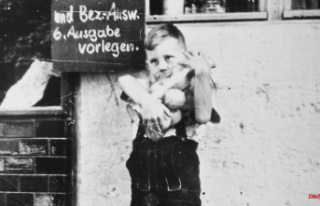A black homeless man collapses during a police operation and dies in hospital three weeks later. A victim counseling accuses the officials of racism, but only gives vague reasons. The LKA is now investigating, the result of the autopsy is still pending.
After the death of a black homeless person, the Berlin police are facing accusations of racism. The 64-year-old man collapsed three weeks ago during a police operation and was taken to the hospital. He died on Thursday. A police spokeswoman confirmed the death of the mentally ill at the Charité University Hospital. The Berlin victim counseling center Reachout accuses the police of "massive brutal violence" during the operation and responsibility for the death; she also speaks of racism.
A commissioner for official offenses in the State Criminal Police Office is investigating the police officers involved. The course of the operation on September 14 and the question of whether the police officers had acted correctly and proportionately had to be clarified, said the spokeswoman. "It's about the question: Did he die as a result of the police operation or not?" The man's body was autopsied. A result was not yet available.
Reachout wrote, citing witnesses, that police officers pinned the man to the ground and that a police officer put a knee on his neck. He bled. Finally he stopped breathing. CPR took more than 20 minutes. He was taken to a hospital and later fell into a coma. According to Reachout, the comatose man's brother was not notified by the hospital until seven days after the incident.
Spokesman Biplab Basu explained why Reachout describes the actions of the police as "racist": "If the police deal with black people in this way, we consider it racist." That is a classification and interpretation based on experience. In addition, Reachout heard from witnesses that the man had not resisted. "He just closed the room door because he panicked when he saw the police uniforms."
The police had announced a week after the incident that the man should be transferred from a home to a psychiatric hospital. Accordingly, a court had ordered the transfer. "As the man became increasingly angry, the police forces who had been informed in advance were asked for support," it said. He defended himself against being taken "with kicks, punches and attempts to bite". Even with handcuffs, he put up "massive resistance". After all, he collapsed in the presence of an ambulance and his supervisor. An ambulance had to revive the man. According to the police, he was taken to a hospital intensive care unit.
At the same time, the Senate published a study calling for the Berlin police to be more open and sensitive to the issue of racism. Study leader Christiane Howe from the Technical University (TU) said the question of whether the police are racist or not cannot simply be answered. Ultimately, one has to say: "Yes and No", just like society as a whole is. Howe went on to say that they hadn't noticed the much-discussed "racial profiling", i.e. checks on people's origin or appearance, during the months they had been accompanying the police officers. "We didn't really observe that." Controls would always have had an occasion or reason.












